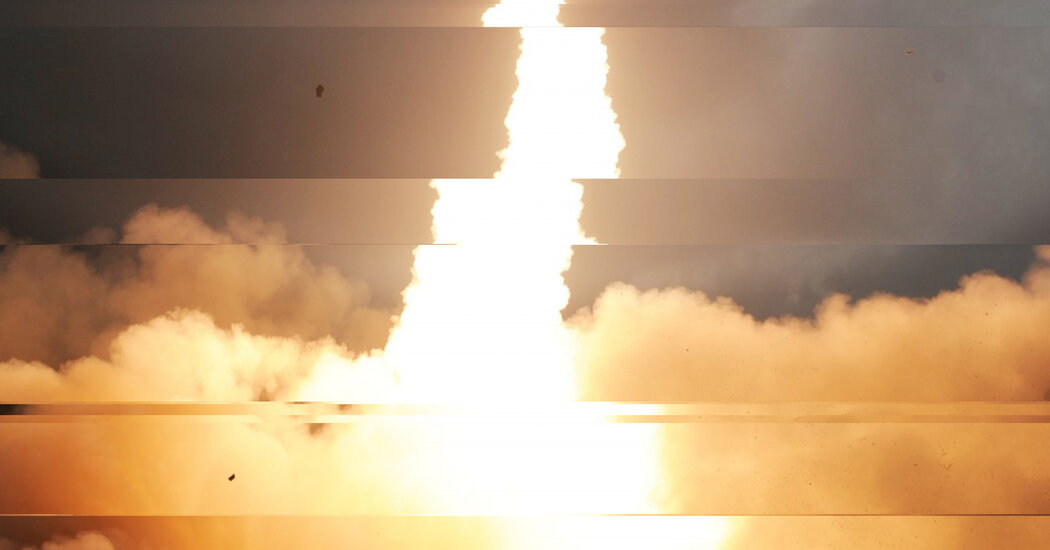After four days of exchanging airstrikes and drone attacks on military infrastructure brought India and Pakistan to the precipice of war, these nuclear-armed nations are holding to a tenuous cease-fire.
The world may have sidestepped a disaster. But last week’s fast-moving crisis demonstrates the inherent dangers of the modern nuclear age — and the corresponding and urgent need for diplomacy — as more nations expand their nuclear arsenals and rely on them for coercion or to make up for a weakness in conventional forces. The indefinite combination of more weapons and human fallibility can lead to their use, intentional or not. There is never zero risk.
We’ve seen it throughout the military campaign of Russia’s president, Vladimir Putin, against Ukraine, where he’s issued implicit and explicit threats to use a nuclear weapon in his war there. We’ve seen it on the Korean Peninsula, where the North Korean leader, Kim Jong-un, routinely reminds the world that his forces are armed and ready for all-out nuclear war. We see the potential in Taiwan, where observers worry that China could use the threat of its arsenal to impose its will on the island.
Conflict between India and Pakistan is nothing new, of course, and fears over the first use of a nuclear weapon between the neighboring countries have long remained remote. The two sides fought wars in 1947, 1965, 1971 and 1999 — a year after both nations conducted successful nuclear tests. They now each have estimated stockpiles of at least 170 warheads, according to the Federation of American Scientists.
As their nuclear forces expanded, the two nations established unwritten rules aimed at preventing a dangerous escalation. Neither New Delhi nor Islamabad wants a nuclear war, stopping each side from going too far when periodic skirmishes break out. For decades, their military confrontations have been confined to the border region, and in particular Kashmir, a flashpoint since 1947, when India was partitioned into two states at the end of British colonial rule. For years, both sides have primarily battled with ground forces, and never close to nuclear sites.
But those rules have been changing. The emergence of drone warfare and precision-guided munitions has caused red lines to fade. In 2019, India launched airstrikes against an alleged terrorist training camp in Balakot, Pakistan, marking the first time that one nuclear-armed nation dropped a bomb on another. The attack, which went further than any other conflict between the nations in decades, put the countries on newly dangerous footing. Last week’s clash was even more destabilizing.




